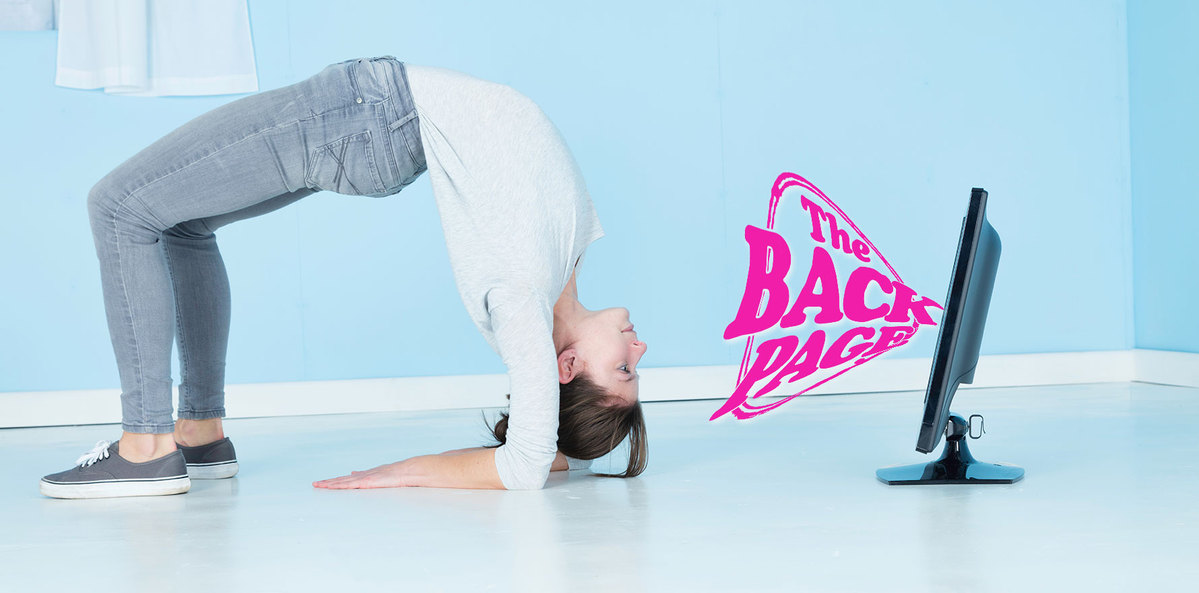Being bendy is a good thing for your longevity.
Bend and stretch,
Reach for the stars!
There goes Jupiter,
Here comes Mars.
Dating ourselves back to the late Pliocene, the Back Page still remembers this little song from the Australian children’s program Romper Room, which admirably encouraged toddlers to get some movement into their daily routine.
We were put in mind of it today by this study in the Scandinavian Journal of Medicine & Science in Sports, which found lack of flexibility to be a predictor of early mortality in middle-aged people.
Having at least one family member who despite being very lean can barely touch his own knees, we are suddenly quite worried.
As for ourselves, we were never in any danger of being recruited to the gymnastics team, but used to be regularly put out when a yoga teacher described us as “soft” – until we realised that meant flexible in yogi jargon.
We may be thankful for our “softness”, and possibly revisit the whole yoga thing, if this study is correct.
The authors say that while aerobic/cardiorespiratory fitness is a well known predictor of survival, and muscle strength and balance are gaining evidence, flexibility is a rarely studied component.
They decided to investigate it, having previously found that another good predictor of all-cause mortality was a simple sitting/rising test that depended largely on flexibility.
They used a dataset of anthropometric, health and vital data from over 3000 people from 1994 to 2022, which included “Flexindex” measurements – a body flexibility score from 0 to 80 derived from 20 movements involving seven joints.
Women’s Flexindex scores were 35% higher than men’s.
About 10% of the cohort died during followup (average 13 years), three-quarters of them male (two-thirds of the cohort was male).
Comparing the top to the bottom third of the flexibility distribution, the likelihood of survival was almost double for men and almost five times as high for women (hazard ratios 1.87 and 4.78).
Interestingly, the authors note, women aged 61-65 were, on average, 10% more flexible than men aged 46-50 years.
The important thing yet to establish is whether deliberately increasing your bendiness can improve your survival.
I’ll wait for that one before tracking down my old yoga teacher, who, we presume, is still alive and flexing.
Don’t tie yourself in knots – send story tips to penny@medicalrepublic.com.au.


